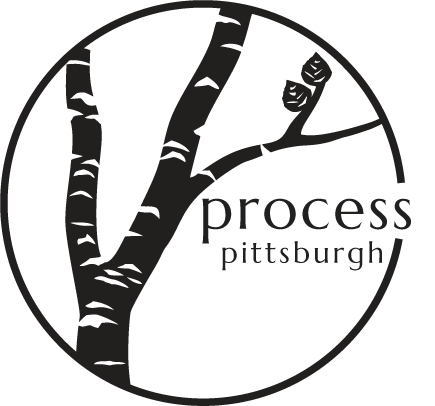Counseling Services
Process Pittsburgh, LLC is located within The Nuin Center, home to other mental health therapists, massage therapists, functional medicine practitioners, and a plastic surgery center.
(Please note that masks are still currently required at The Nuin Center.)
What is psychotherapy? What should you expect?
PSYCHOTHERAPY IS
Exploration of Thoughts
Behaviors, Patterns
Exploration of thoughts, feelings, behaviors, relationship patterns—potentially from childhood to present
Skills-based Learning
Some skills-based learning and psychoeducation on alleviating distress and understanding your nervous system's response to stress
Supportive & Respectful
Supportive, challenging, revealing, rewarding and also
respectful of your needs and autonomy
Confidential
All sessions are strictly confidential. EHRs and teletherapy utilize HIPAA-compliant technologies
And May Include
...talk therapy, experiential/somatic therapy, mindfulness, cognitive behavioral interventions, art/narrative therapies, and other interventions depending on your needs
PSYCHOTHERAPY IS A

Psychotherapy is not
01
Simple Advice Giving
A therapist does not know your life better than you do, and can’t tell you what to do in a given dilemma. A therapist, however, can work with you to help you make decisions that are best for your life.
02 Tips & Tools for an Easy Resolution
You can get those for free off the internet! (And longer-standing emotional distress is not often resolved so quickly or easily.)
03 Friendship
(though your therapist cares about you!)
Being friends would compromise your therapist’s ability to do effective and honest work with you. Therapists need to maintain clear boundaries in order to protect the healing space of therapy.
Your First Intake Session Will Look Like
Introductions, then an explanation of confidentiality and informed consent. I will explain my approach and answer any questions you might have. I’ll assess what pace you need for this first session and adjust accordingly (some people will want to move more quickly through intake questions and some will want to take their time).
I’ll ask you intake questions. This is an information gathering visit, so it will look different from regular therapy appointments where we will be concentrating on work toward your goals. Intake questions will include discussion about your presenting issues, questions about your family history, relationship history, social history, work history, and medical/health history. You’ll be asked questions about any acute or chronic traumas. You are welcome to answer or not answer questions: you get to decide. If relevant, we will also discuss environmental/religious or spiritual/legal or other history. I will also conduct a risk assessment that asks you about substance use, suicidal/homicidal ideation, and self-injury.
We’ll end the session with a discussion of your strengths and goals for therapy, making space for any questions that have come up along the way. Always assessing for fit, we’ll at that point discuss insurance, payment, and future scheduling.

